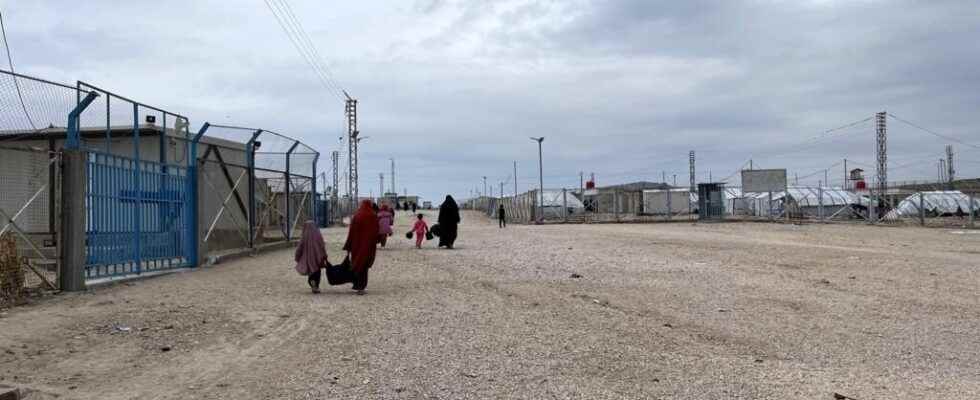France repatriated, this Tuesday, January 24, 15 women and 32 children who were detained in a camp for jihadists in northeastern Syria. This is the third major repatriation since last July. The women, who had joined the Islamic State group, were handed over to justice and separated from the children. Claire Paucher, judge for children in Bobigny, details how the care of these children will take place.
RFI: What happens to these children once they return to France?
Claire Paucher: These children, when they arrive in France, are separated from their parents who are placed in police custody. The children are entrusted by the public prosecutor to child welfare services, which is a service of the department. And then, the child welfare services most often direct them to a foster family.
Why are these children not directly entrusted to grandparents, to extended families, who have been asking for them for many years?
Nothing prohibits it in the law, but in practice, most often, we choose to have educational investigation measures carried out beforehand to better assess the request of grandparents and their possibility of reception, and also better understand the family history to really be able to think of a longer term project for the child.
► Read also : France repatriates 15 women and 32 children from jihadist prison camps in Syria
Can parents, who often go to detention, see their children?
If it is in the interest of these children to see their mother, they will be able to see her within the framework of mediated visitation rights. Afterwards, it is obviously a question of appreciation of the file by the judge of the children who seizes.
You stand back, because you have seen repatriated children. Do you follow them? Do you have any news of what becomes of them?
Yes, of course, because we received the first cases in 2016-2017. So we have a little backtracking. And what we can say is that some children are doing well. In general, when there is coherence around them, when we manage to work in coherence with the educational services, the extended family and also the parents, the children manage to find a balance. But again, it all depends on the case.
Are there children for whom it is difficult to readapt to life in France?
Yes, it can be complicated. Some probably experienced trauma in the territories of the Islamic State group, in the camps. Then there is also, it must be said, the trauma of separation from parents for sometimes very young children, even babies.
What do you say to those who say that these children, given their experience, are already lost, that they are time bombs and that they shouldn’t be repatriated?
All actors in the legal world and child protection are convinced that it is never too late for a child. We can of course repair it, we can help it to build itself. The only thing is that you have to take good care of these children, and I was going to say as soon as possible in fact.
So, proceed with repatriations as soon as possible…
In general, a child who has been traumatized, the earlier we take care of him, the better, of course.
► To listen too : In the Roj camp in Syria, with the families of French jihadists
